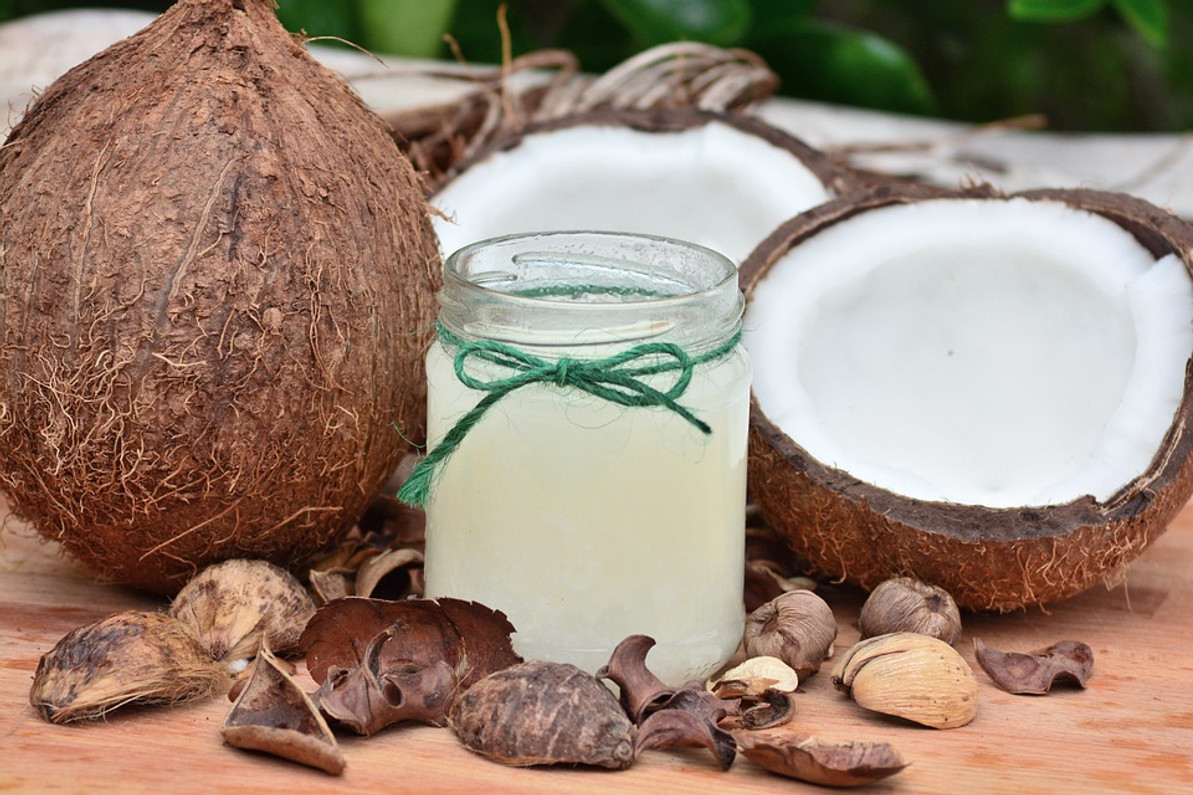Why Coconut Oil May Not Be So Good for Your Health

In recent years, coconut oil has been touted as a better, more nutritious alternative to vegetable oil. Consisting of the fatty material from the inside of coconuts, it's used as a cooking oil and flavoring ingredient in a variety of dishes. Many people prefer coconut oil over vegetable oil because of its higher smoking point and unique flavor. But you may want to think twice before cooking with it, as new research suggests that coconut oil may not be as healthy as previously thought.
During a lecture, University of Freiburg professor Karin Michels described coconut oil as being "pure poison." This statement has send shock waves throughout the medical community, with many doctors and experts either agreeing with or rejecting Michels's stance on coconut oil.
So, what exactly makes coconut oil akin to poison? When you think of poison, substances with harmful chemicals or toxins probably come to mind. Coconut oil, however, doesn't carry many bad chemicals or toxins, leaving many people to question why it's considered poison? Well, according to Michels, coconut oil is bad because of its high content of saturated fat.
There are different types of fat, including unsaturated, saturated and trans. Unsaturated fats, such as polyunsaturated and monounsaturated, are good for your health because they promote healthy cholesterol levels. When consumed, they lower bad cholesterol levels and increase good cholesterol levels, thereby protecting against heart disease and related illness. Trans fat, on the other hand, is the worst type of fat because it lowers good cholesterol levels and increases bad cholesterol levels. Saturated fat -- the kind found predominantly in coconut oil -- falls somewhere in the middle. It raises both good and bad levels of cholesterol. As a result, current dietary guidelines recommend that men consume no more than 30 grams of saturated fat per day, while women should consume no more than 20 grams per day.
The problem with coconut oil is that it contains significantly high levels of saturated fat. Just 1 tablespoon packs up to 12 grams of saturated fat. And considering that many people consume multiple tablespoons per day, it's easy to go over your daily limit of saturated fat.
"There are many claims being made about coconut oil being wonderful for lots of different things, but we really don't have any evidence of long-term health benefits," said Dr. Walter C. Willett of the Harvard T.H. Chan School of Public Health.
Even with its high concentration of saturated fat, coconut oil isn't necessarily poison. Granted, it contains lots of saturated fat, and consuming too much may disturb your cholesterol levels and contribute to heart disease. The key thing to remember is that you should consume it in moderation. If you cook with coconut oil one night, use vegetable oil or olive oil the following day. Alternating your cooking oils ensures that you aren't consuming too much saturated fat in your diet.
Recent Posts
-
Fire Safety in the Workplace: What You Need to Know
What steps are you taking to prevent fires in your workplace? According to the U.S. Occupational Saf …Aug 23rd 2023 -
Is It Safe to Go Jogging With a Cold Infection?
If you're suffering from a cold infection, you might be wondering whether it's safe to go jogging. T …Aug 22nd 2023 -
5 Safety Tips to Follow When Using a Powder-Actuated Tool
Powder-actuated tools are commonly used to join materials to steel and concrete. Also known as Hilti …Aug 20th 2023




